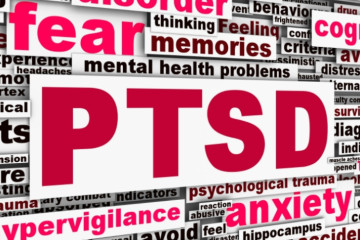Size Does Matter: How Cleaning Up Your Act Can Stop Your Brain From Shrinking

Your brain grows until you are about twenty-five. After that, it starts to atrophy, losing an average of 0.4 percent of total volume a year with the rate of loss increasing as you age. And though there is not a lot you can do about getting older, there are some lifestyle changes you can make right now that are scientifically proven to slow or even reverse brain shrinkage.
Smoking: The National Institutes of Health-sponsored research as early as the 1980s that showed smokers across age groups losing significantly more brain mass over time than nonsmokers. A study by the scientists at McGill University recently found that smoking thin’s the brain’s cortex, the outer layer that controls cognition (Alzheimer’s patients also show deterioration in the outer cortex). The good news is that this deterioration can be reversed if you kick the habit, and the sooner the better. The same study showed that the cortexes of former smokers thickened each year after they quit; after twenty-five years tobacco-free, their cortexes were the same dimensions as those of nonsmokers.
The NIH has also spearheaded the research on effective methods for quitting smoking. Smokers who seek advice on quitting from their doctors, counselors, or a helpline are more likely to succeed than those who do not. The NIH’s National Cancer Institute runs a hotline (1-877-448-7848) where you can find out about free resources to help you stop smoking. In addition, the NIH recommends looking into FDA approved smoking cessation aids, such as nicotine patches, gums, and lozenges. These, along with some coaching and support programs, are covered under many health insurance plans.
Alcohol: Wine lovers the world over have rejoiced at the news that moderate consumption of alcohol can be a boon to overall health. However, like with many medicinal substances, the key is moderation. In the case of alcohol, the NIH’s National Institute on Alcohol Abuse and Alcoholism has defined safe drinking amounts as no more than seven drinks a week for women and fourteen drinks a week for men. Long-term alcohol consumption at levels higher than that can shrink the brain cells and directly and negatively impact motor coordination, sleep patterns, mood, memory, and the ability to learn. But as in the case of smoking, abstinence from alcohol can allow the brain to repair itself. Several studies in humans and animals have shown brain mass increases after a heavy drinker goes on the wagon.
If you find yourself having trouble moderating your drinking to a healthy level, you might have a drinking problem. The NIAAA recently asked 36,000 adults about their alcohol consumption. They found that 14 percent of Americans, nearly 33 million, were currently problem drinkers, and 30 percent, about 69 million, had struggled with alcohol addiction at some point in their lives. If you need help cutting down on your drinking or eliminating alcohol from your life entirely, you have options ranging from in-patient treatment to support groups like Alcoholics Anonymous. The government’s Substance Abuse and Mental Health Services Administration runs a 24-hour helpline where you can talk in confidence about your options for escaping an addiction to alcohol (1-800-487-4889).
Obesity: In 2010, scientists at Boston University and University of California, Los Angeles, in two separate studies, found a correlation between obesity, especially obesity in middle age, and brain size (which in turn affects the onset of dementia in later life). And in 2012, at the joint International Congress of Endocrinology/European Congress of Endocrinology, researchers reported that older people with pre-diabetes and type 2 diabetes show accelerated patterns of brain degeneration. One theory to explain both findings is that fat tissue secretes a chemical called cytokines, which may lead to brain deterioration.
Study after study has shown that the most effective way to take and keep weight off is not fad diets or fancy exercise machines but calorie restriction and regular exercise. However, recent research by doctors at the Icahn School of Medicine at Mount Sinai in New York has suggested that chronic obesity may be more the result of biological factors than of eating and exercising habits. If you feel you fall into that category, you should speak to your doctor about whether you might be a candidate for medical intervention, such as prescription drugs or bariatric surgery.
When it comes to your brain, size does really matter. And though everyone will lose brain mass as he or she ages, the rate at which that happens — and the impact on memory, balance, intelligence, and clear thinking - can depend on healthy, or unhealthy, habits. Eating a sensible diet, exercising regularly, drinking only in moderation (and understanding what that means), and quitting smoking all can slow and sometimes even reverse losses in brain volume.



